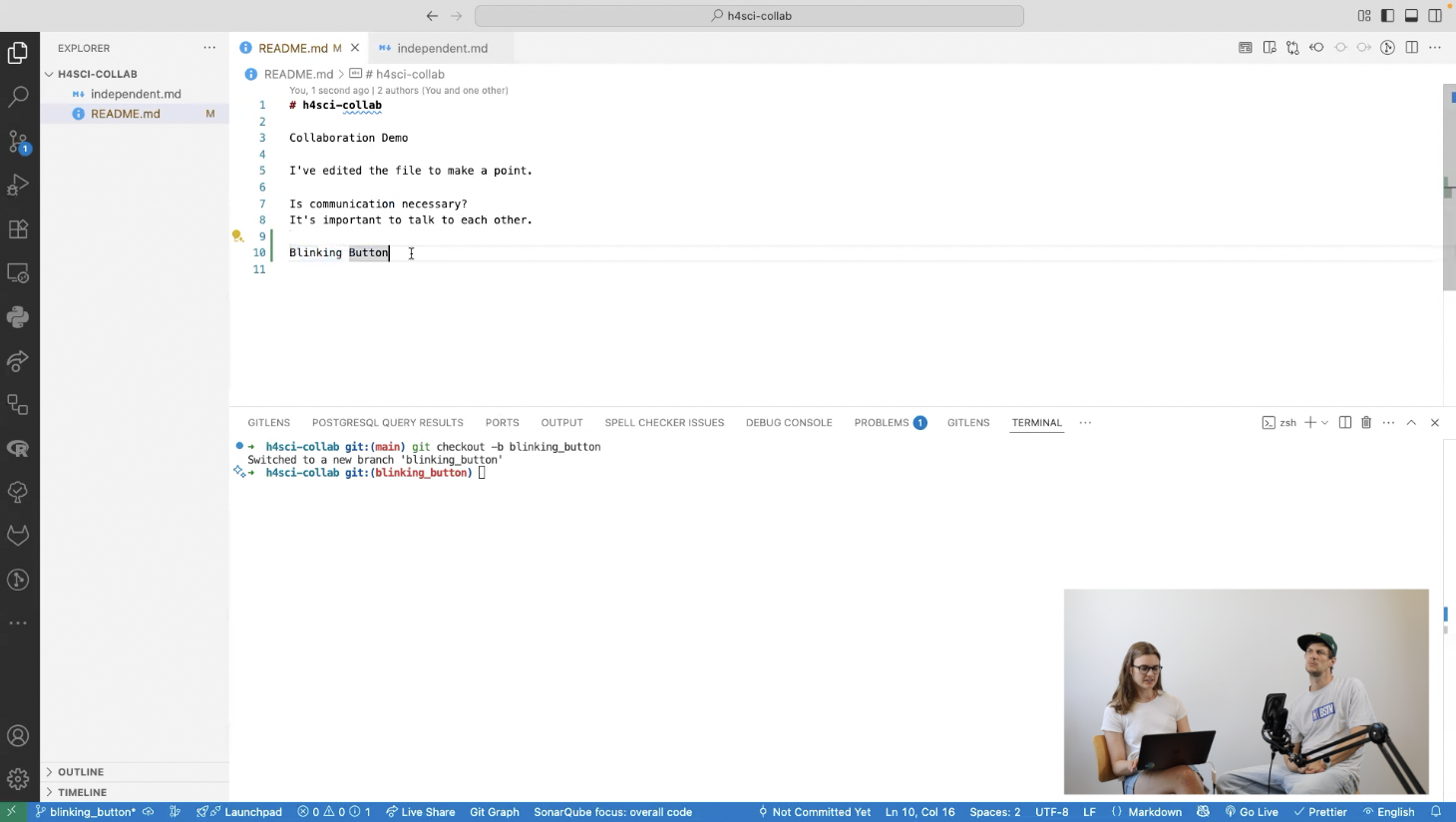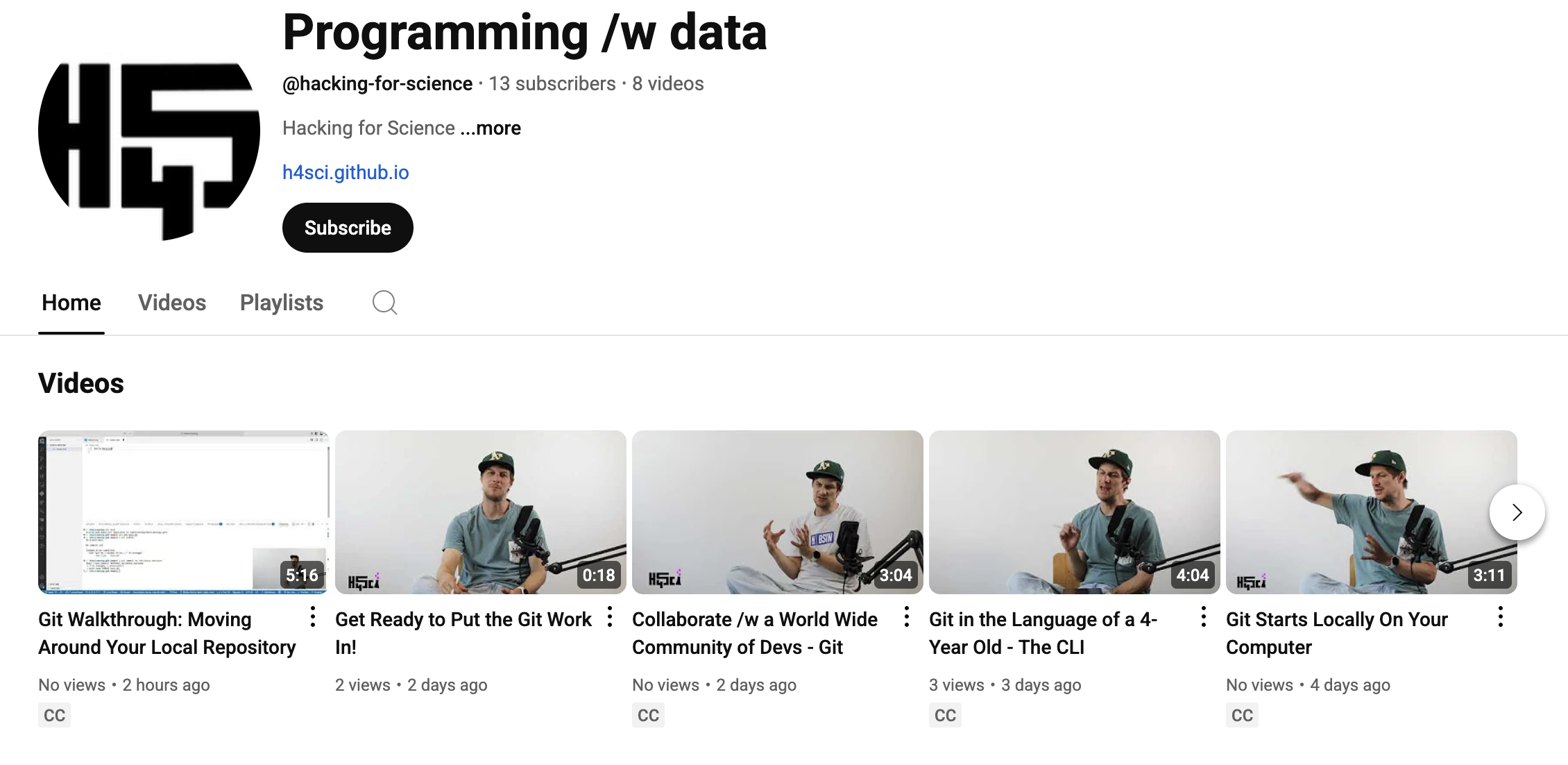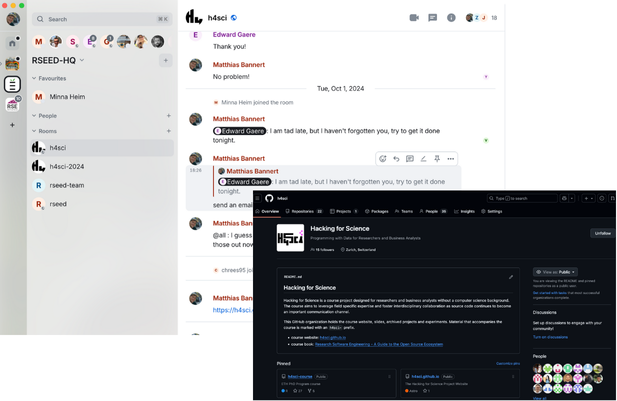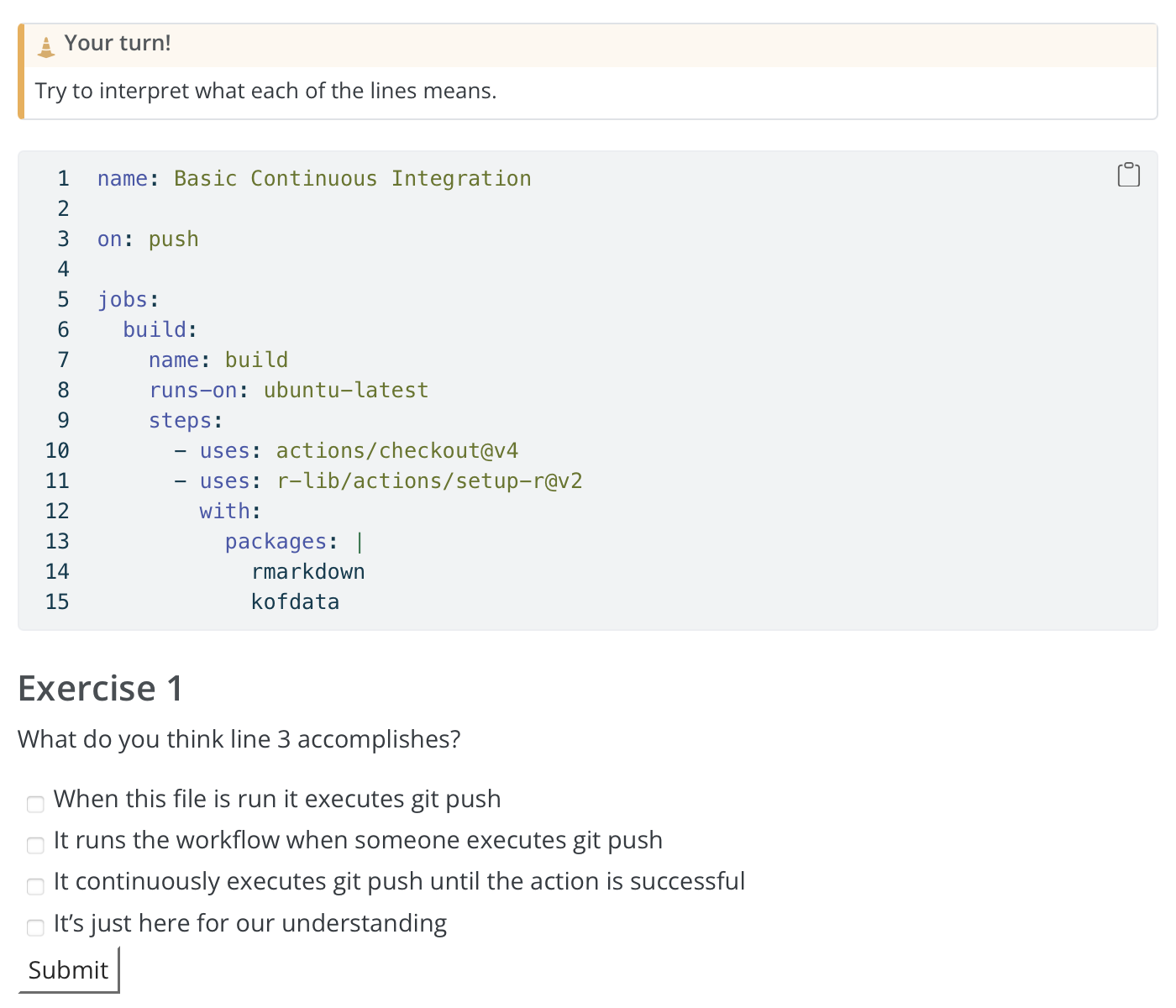Course Materials
Prepare. Practice. Discuss. Apply.
Information is ubiquitous. Time to practice, commitment and endurance is limited and has opportunity costs. Everyone has a different starting point, we all learn differently - particularly in a course where students from many fields come together. Hacking for Science aims to provide comfortable entry points to a wide variety of people who are interested in programming with data.
Video Series: A Guide to Learning Git
Git is the de facto standard when it comes to managing source code. Almost all software development teams use git in some form or another. Yet, git is not always intuitive and to reach a level of git proficiency that makes a collaborator fit into teams requires practice.
The goal of this video series is to motivate and guide the listener's training. The largest git platforms are worth billions of dollars even though large chunks of the source code they host are publicly available to anyone. The enormous amount of public git repositories does not only provide free software to the endusers and inspiration to developers - it's a lake of information for AI tools from GitHub Co-Pilot to Claude and beyond.

Conceptual Videos
Understand the core ideas. A good conceptual understanding makes your know-how sustainable and transferable to a broad variety of situations.
The Potential of Your Investment
Just Git. Git on a Local Computer.
The CLI: Git in the Language of a 4-Year Old

Walkthrough Videos
Get comfortable by applying the git workflow. Our walkthroughs help you follow along step by step. All walkthroughs are accompanied by sections in the Research Software Engineering book as well as benchmarking quizzes.
Contribute Via Feature Branches



